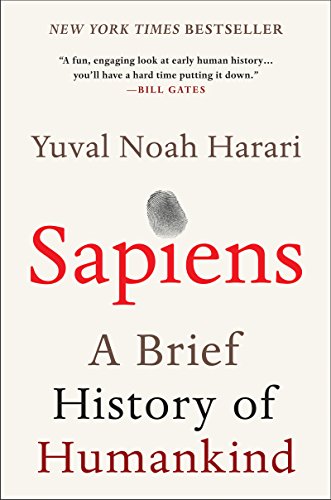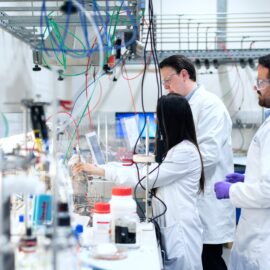

This article is an excerpt from the Shortform summary of "Sapiens: A Brief History of Humankind" by Yuval Noah Harari. Shortform has the world's best summaries of books you should be reading.
Like this article? Sign up for a free trial here .
What does the future of the human race hold? Will we remain the same race, Homo sapiens, that we are now?
In the future of the human race, intelligent design could replace natural selection in one of two ways (or a combination of the two): cyborg engineering and biological engineering. We’ll cover what these are and what new questions they’ll introduce to the future human race.
The Future of Intelligent Design
The future of the human race may be relatively short, not because we cause ourselves to go extinct, but because we become an entirely new species. Let’s look at the two primary ways the future human race may evolve until it’s no longer classified as “human.”
Way #1: Cyborg Engineering
This is when scientists combine inorganic parts with organic life. For example, humans (organic life) with bionic hands (inorganic) might be considered cyborgs.
Today, most of us are cyborgs: We have pacemakers and hearing aids, and even cell phones and computers have become a part of us, storing and processing data and therefore relieving our brains of those tasks. The future human race will likely be far more engineered than we are today.
Recent examples of cyborg engineering include:
- Research into creating bionic insects. Scientists plan to implant insects with inorganic material like electronic chips, allowing them to transmit data from across enemy lines.
- Research into a retinal prosthesis, a microchip implanted in the eye that would take in light and turn it into electrical signals that talk with nerve cells in the retina, allowing blind people to see.
- Bionic arms that are controlled entirely by the thoughts of the users.
The most ambitious current cyborg project aims to create a brain-computer interface that would allow two-way communication between the two. This brings up all sorts of questions about how we define identity. If we can download our memories to a collective memory bank and then directly access the memories of others, remembering experiences as if they had happened to us personally, what does this mean about the nature of the self? What would define your sense of self if everyone could have the same experiences you did by accessing your external memory? The future human race will have difficult questions to answer about identity.
Way #2: Biological Engineering
This is when scientists intervene with an organism’s biology to change its physical, behavioral, or emotional characteristics. For example, in the past, we did this through castration: we could make a bull less aggressive or preserve a young boy’s soprano voice by removing his testicles.
Recent examples of biological engineering include:
- Genetically engineering E. coli to function as biofuel and insulin.
- Introducing worm genes into pigs, turning pork’s omega 6 fatty acids into omega 3s, therefore making pork healthier for humans to eat.
- Improving the memories and learning skills of mice.
Researchers are even planning to bring back to life species that are long extinct, including Neanderthals. If researchers succeed in bringing back the human Neanderthals, it would be a big moment in determining the capabilities of the future human race.
But all biological engineering projects are controversial. Religious activists say man shouldn’t “usurp God’s role” by creating new species. Animal rights activists fight against the suffering caused to animals used in intelligent design experiments. Human rights activists worry that genetic engineering will lead to the creation of superhumans who could wield power over the rest of us.
It’s true that we’re on the brink of being able to tinker with genetically engineering humans. This could potentially turn us into a different species altogether, the future human race. Many people have ethical objections to this possibility, but those objections probably won’t stand in the way for long. For instance, if we discover a way to cure Alzheimer’s that also happens to improve the memories of healthy people, will ethics and politics really be able to keep healthy humans from taking advantage of this discovery?
———End of Preview———

Like what you just read? Read the rest of the world's best summary of "Sapiens" at Shortform . Learn the book's critical concepts in 20 minutes or less .
Here's what you'll find in our full Sapiens summary :
- How Sapiens outlived and outlasted the 8+ other human-like species on Earth
- The 3 critical revolutions in human existence that led to our domination of the planet
- How much of what powers our world today is really just a shared mass delusion
- What the future of humanity might look like






